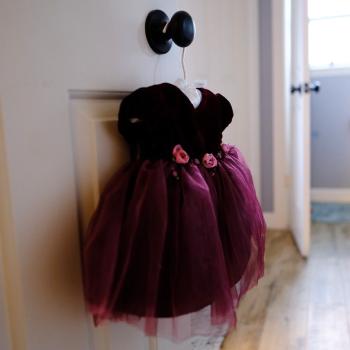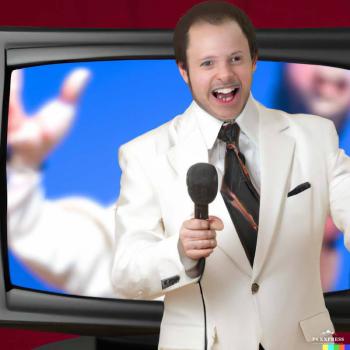As we begin the second part in this series based on an edited transcript of a sermon I preached at Jubilee, we must remind ourselves that each of us has a vocation. We have a role, we have a job to do. It doesn’t really matter whether you are a top businessman or whether you are a home-maker, you have a role to do. What can Esther teach us about this? We saw yesterday that the book of Esther is about how God can bring deliverance through ordinary people working together and playing their part well
There are lots of different kinds of jobs people do. It’s a funny old thing but one of the characteristics of my career has been that I’ve had a remarkable range of things that I’ve done. Some of these were very short-term but nonetheless I’ve had a bit of a taster, let me give you a heads-up of what my career looks like.
My career began when I was still a child, actually I am not even sure I was technically old enough to work, there so I am not going to say how old I was. But I remember washing cars for the neighbours. It was like I had my own little business. I remember that I got these little leaflets done, and invested in a washing-up bucket and what I needed. And that raised the money I needed to buy my first computer. It’s a measure of how old I am that that first computer was called an ‘Oric 1’ Not the ZX81, which was far inferior, not the Sinclair Spectrum, which was the PC of its time. I like to think I had the Apple of its time – the Oric 1.
There are lots of different kinds of jobs. That was my first job and then of course, like many people in my day, I did a newspaper round. Not many people do that these days, do they? But I did. I very quickly graduated to collecting money from people’s homes to pay for their newspaper delivery. I just want to point out – I was not a debt collector, okay? The service was that I would go around and collect their money to save them having to go into the newsagents. I wasn’t chasing up bad debtors, although some weeks people were conveniently not in and I’d come back and I was like “Errm.. you’ve got two weeks to pay.” If it got to a month then we started to get worried!
I also remember washing dishes in a restaurant. I worked in factories as well. I worked in a plastic manufacturing company where we poured molten plastic into certain moulds and made stuff. I think I only did that for about a week or so. One of the things that put me off was when my machine stopped working, and I asked for help from one of the supervisors. Unfortunately molten plastic poured all over his hands as he was trying to fix the thing. I learned a bit about health and safety at work. Perhaps that led to some of my later direction, I’m not sure. But I got out of that job pretty quickly!
Then I remember actually working for what I call a “banana factory.” You might well ask, “what do you mean a ‘banana factory’ Adrian? They don’t make bananas in a factory.” I understand that much biology, you know!” My job was this: I had to open boxes, take the bananas out of the boxes, put them on a conveyor belt and they would go down the conveyor belt and somebody else would put them in another box. And I remember thinking at the time, “What was this about?” But it was only as I reflected on this that I realised the reason why the new boy was put on the ‘taking the bananas out of the boxes’ job. I was front-line for the tarantulas, I’m sure of it now! They never told me to look out for them. I suppose they thought I’d notice them pretty quick! And I don’t know what would have happened if one would have been there and bitten me. It was my job to stop you from being confronted by a spider when you bought your bananas. It was a very important role!
Then there was the chicken factory and I think I left that after a chicken fell on my head. It was dead, I should say. I wasn’t so good in that factory either. But in all these different jobs that I was doing while I was still at school, there were lessons that you learn that you then apply to other work.
I think that we sometimes get so caught up in our own career that we think we can only learn from people in the same line of work. We’ll see a bit more about that later in this series. But very quickly I decided that factory work was clearly not the role for me. One of the remarkable things was meeting some people there who said things like, “Oh I’ve worked here for 15 years.” It seemed like a long time, but they often said, “I love this job, it’s great.” It was quote interesting to see, because I to be honest, I haven’t always seen that level of contentment in some of my later colleagues.
I later worked as a cleaner in a hospital. I really wasn’t very good at that job. Ask my wife and she will say, “How did you do that?” It took me hours to Hoover one corridor – and I didn’t do it very well! So I think I lasted in that one about two days.
I was a bit better at being a hospital kitchen porter. So my job was to move things – lots of baby food I remember – from the hospital kitchen to the wards. Then I graduated to being a kitchen chef. So I actually cooked the vegetables for the hospital. Why are you laughing? I was actually quite good at that! I discovered that the real secret was to actually under-cook the vegetables because when they were slightly undercooked, they would still cook in the trolley and hopefully by the time people ate them, they weren’t completely mushy.
Then I became an auxiliary nurse. I did that for a little while. Again this was during holiday times. My career was to actually become a doctor and I worked as a junior doctor. I would see people in A&E. Both surgery and medical, treating people as they came in with heart attacks, or appendicitis, and working throughut the night. Let me just say, I know there are many people who think they’ve got a tough job, but until you’ve gone to work at 9am on a Saturday morning and not finished until 6pm on a Monday evening, and then had to come back to work on the Tuesday you don’t know what tough work is. I’ve got it very easy now, I have to say. If you know a junior doctor, just tap them on the shoulder one day and say, “Well done.” What’s scary though is that when we go in a plane, we limit the number of hours an airline pilot can do because we think it’s important they’re awake when they’re flying the plane. Next time at 3am and you’re in hospital and you’re very sick, ask yourself this: “Am I glad this doctor is treating me?” Perhaps you should listen carefully to the nurse, because they tend to “only” do 12-hour shifts – not quite so long!
I then specialised in psychiatry, taking another qualification. At those times, I did a bit of work in schools, as well as assessing people who were going to be on trial. So I understand a little bit about what that those environments involve.
My next step, by a set of so-called “co-incidences” was to work in the head office of a large international company, working very closely with sales and marketing, dealing with the media, the regulators and coping with all the office politics.
And now I work from home. I work from a converted bedroom, but travel the world. I recently got my silver card with BA. You can actually travel quite a lot without getting one of those. So it gives you an indication of just how much travel I have been doing recently. Sometimes I don’t mention my trips on my blog here. I often pre-program blog posts to appear.
I told you all of that because it is a slightly odd career and yet it does kind of hold together. And maybe some of you feel as if you have reached a kind of block in your career. Perhaps God’s going to unlock a change in direction for you that you’ve never even considered.
Tomorrow we will return to Esther.
















